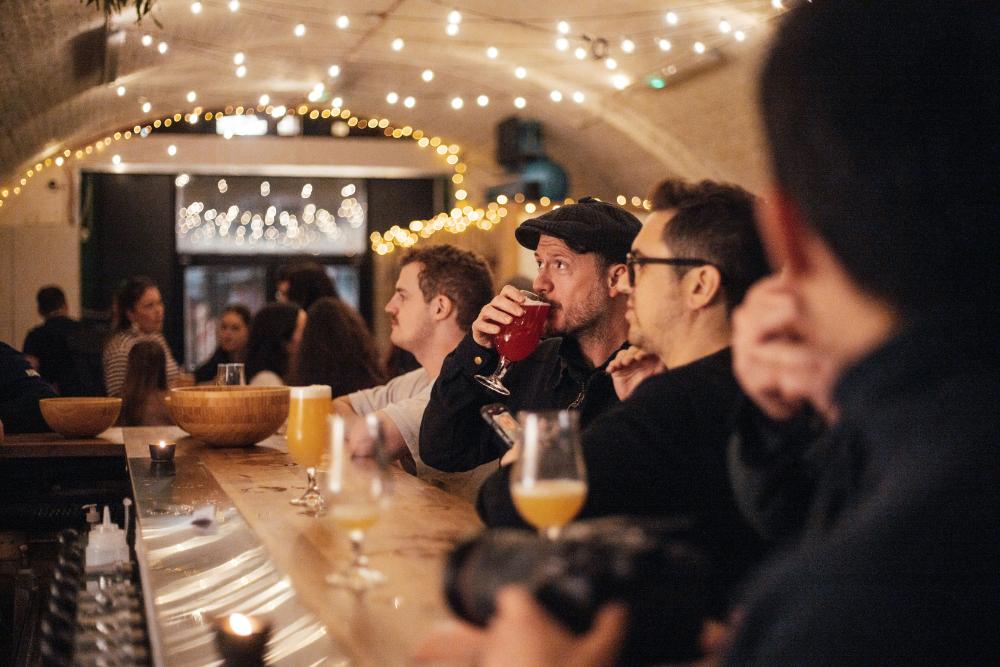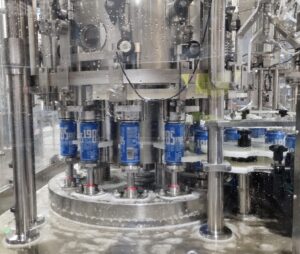What do you get when you combine three beer-loving friends who also happen to be experienced brewers? Combine this with a fantastic London location and a commitment to producing and serving the freshest, tastiest beers, you have one of the latest additions to the capital’s ever-changing brewing scene. And it’s a scene that’s all the better for having them part of it, too.
Opening your own brewery, at any point is time, comes with its own challenges and hurdles to overcome. Just ask the countless outfits that had COVID to contend with, weeks and months, after slinging open their doors.
And in the current economic climate, things probably aren’t much easier, to say the least. But people are thirsty, and there remains an insatiable appetite for excellent, locally-made produce.
Which is conveniently exactly what John, Ollie and Nick, the co-founders of Great Beyond Brewing Company specialise in. The brewery, which launched with a soft opening last November, is founded by a trio that take pride in their work, their community, and their values, while the team’s approach to brewing emphasises quality, sustainability, and creativity.
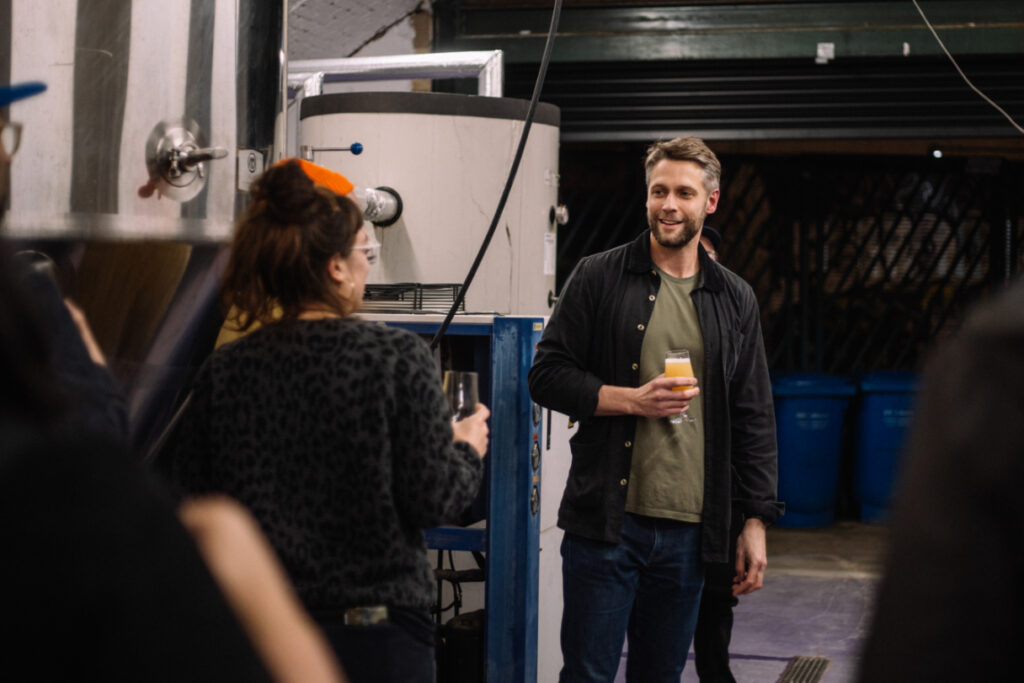
And in Great Beyond Brewing Company they are treading the path many of their peers have done before – setting out on their own into the wild world of brewery ownership.
Speaking to co-founder John Driebergen, he tells us about his love of brewing and his desire for Great Beyond Brewing Company to become part of the fabric of East London, as well as the team’s experiences working in the the industry and the lessons they’ve learned along the way.
“I think many brewers kind of dream about opening a brewery one day and, in that sense, I’ve been thinking about it for probably close to 12 years, I guess,” he recalls. “But I started to think about it more seriously probably two years ago. And like many people during COVID, when did a lot of reflecting.”
Prior to starting Great Beyond Brewing Company was working at Fourpure, based in Bermondsey, London. A business that was acquired by Australasian brewing firm Lion and was subsequently sold to In Good Company Brewing, alongside Magic Rock, last summer.
“I found the transition from working for an independent craft brewery to a larger one (Lion) and the corporate ownership that came with that quite difficult on a cultural level. But I also appreciated the job security during COVID, and I learned a lot in that period, too,” says Driebergen.
He adds: “But the pandemic gave me time to think. I started to speak to Ollie Parker, my then Fourpure colleague, and the conversations become more serious. Nick Walsh, who was also at Fourpure, then came on board.
“It was a long road, using evenings and weekends to plan the business, raise the money we’d need, source a location and the equipment that could eventually call that location home. It has been like working two full-time jobs at once for the last two years. So the irony of finally opening during a perfect storm, economically, is not lost on us!”
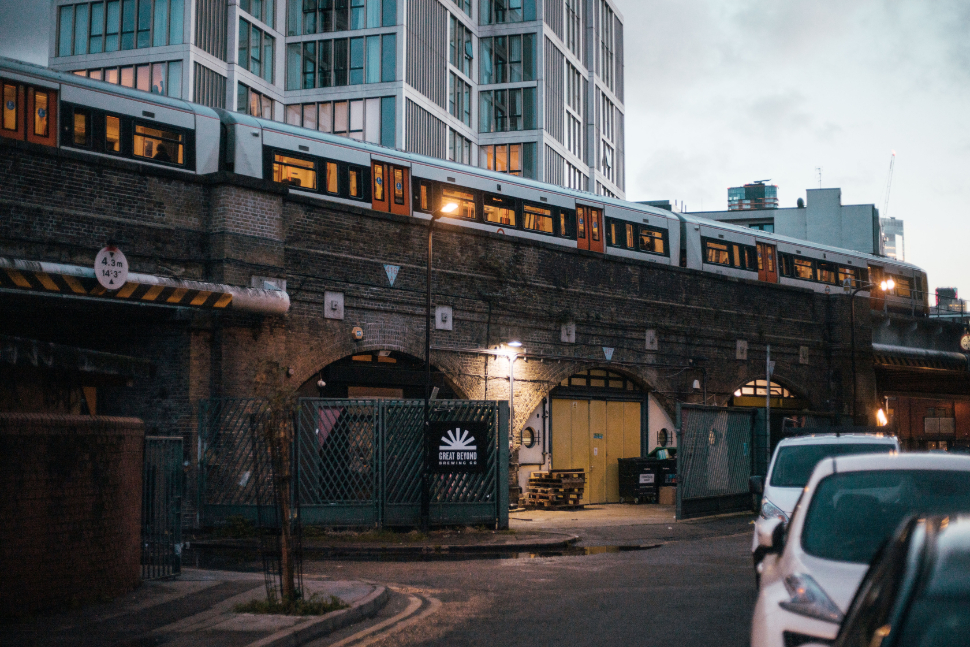
Great Beyond Brewing Company would open on Union Walk in London. An enviable location in Shoreditch, minutes from Hoxton Overground station and the countless bars and restaurants the area has to offer. In opening in the vicinity, a taproom offering is at the heart of the brewery.
“As a new brewery, our business model is ultimately about having a small core range based on Hoxton Fresh (4% DDH Session IPA), Hoxton Lager (4.4% English Keller Lager), Gluten-Free West Coast (4.4% Pale Ale) and a sour beer, too,” he explains. “Our business model is to sell as much beer as we can via the taproom and to also have keg and can product to sell locally and also really anywhere within the M25.
“But those direct sales through the taproom are incredibly important, especially as it helps us absorb the rising costs we are facing. Cost pressures are affecting us like everyone else. That said, in starting this brewery, the greatest challenge to-date was securing that premises license.”
“Direct sales through the taproom are incredibly important, especially as it helps us absorb the rising costs we are facing. Cost pressures are affecting us like everyone else.”
John Driebergen
And like many new businesses know, securing the relevant licenses is all-important and it’s not always straightforward, either, as the team would find out.
“In working our notice periods at Fourpure, and using every spare moment here, we outsourced as premises license to an expert,” recalls Driebergen. But, if I’m honest, the consultant didn’t put together a great application and it was subsequently denied by Hackney Council. It didn’t help that there was a fair amount of organised opposition to the brewery from an adjacent property developer, either.”
The developer in questioned financed a campaign with a petition that targeted local residents and also surrounding neighbourhood buildings and businesses. The aim was to stop the brewery opening but, thankfully, it failed.
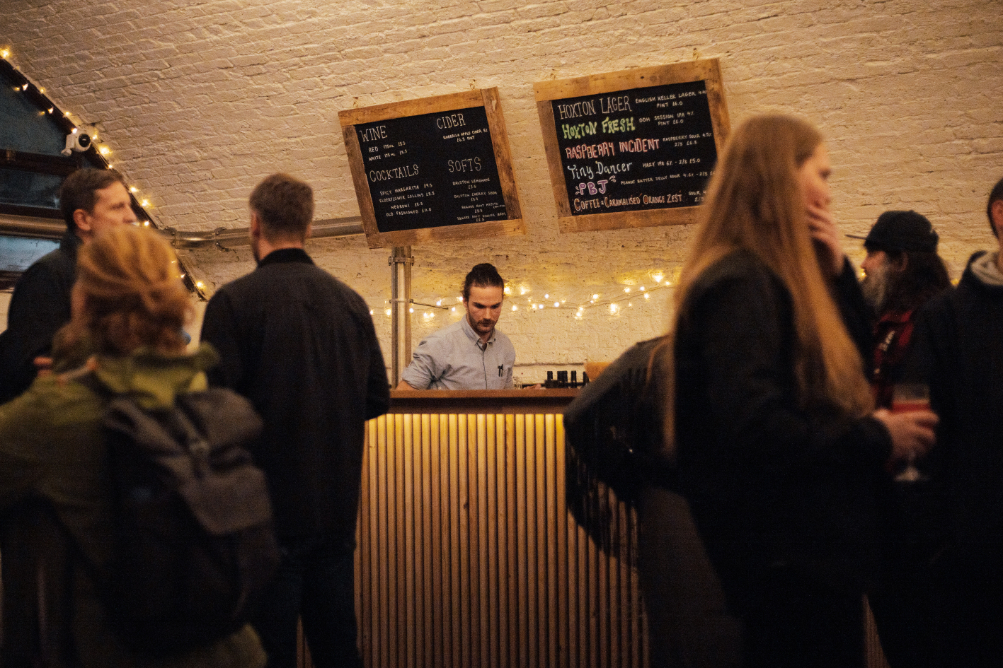
He looks back: “There were expensive legal fees that we didn’t anticipate but following a second application, our license was granted. Even so, we had to initially open with a TEN. (A Temporary Event Notice is required if you want to carry out a ‘licensable activity’ on unlicensed premises in England or Wales.) “It slowed us down somewhat and meant we couldn’t exit our “soft launch” phase until later than planned. It probably slowed our momentum a fair bit but at the same time, the publicity that campaign gave us had its benefits, too.”
According to Driebergen, the petition painted “a picture of a business that is nothing like ours”. It made it sound like the brewery was going to be extremely loud and noisy, and open all night. Understandably, with those early accusations in mind, there were some that were reluctant to support the opening. But with those needless fears allayed, there ended up being hundreds of local residents and employees ready and eager for the brewery to pour those first beers (and other beverages, too).
“We are already seeing visitors from across the board, which is great as we are a London-based brewery and need that local love,” he says. “We are also grateful to the support from local businesses like Howl at the Moon (neighbourhood pub), TT Liquor (cocktail bar) and Kill The Cat (craft beer bar and bottle shop).
“We live in London, we love living in
London and we want to keep living in London. We are very proud to be a brewery in this city.”
Early batches of Hoxton Fresh, the DDH Session IPA, has hit the right note with both the team and consumers alike. “We’re really happy with it so haven’t change much so far,” says Driebergen. “It has a really lovely, soft, pillowy mouthfeel and full saturation without any kind of hop burn or harsh notes. To us, it’s very balanced, really aromatic and we love it. We hope it’s going to be a great sort of flagship product for us”
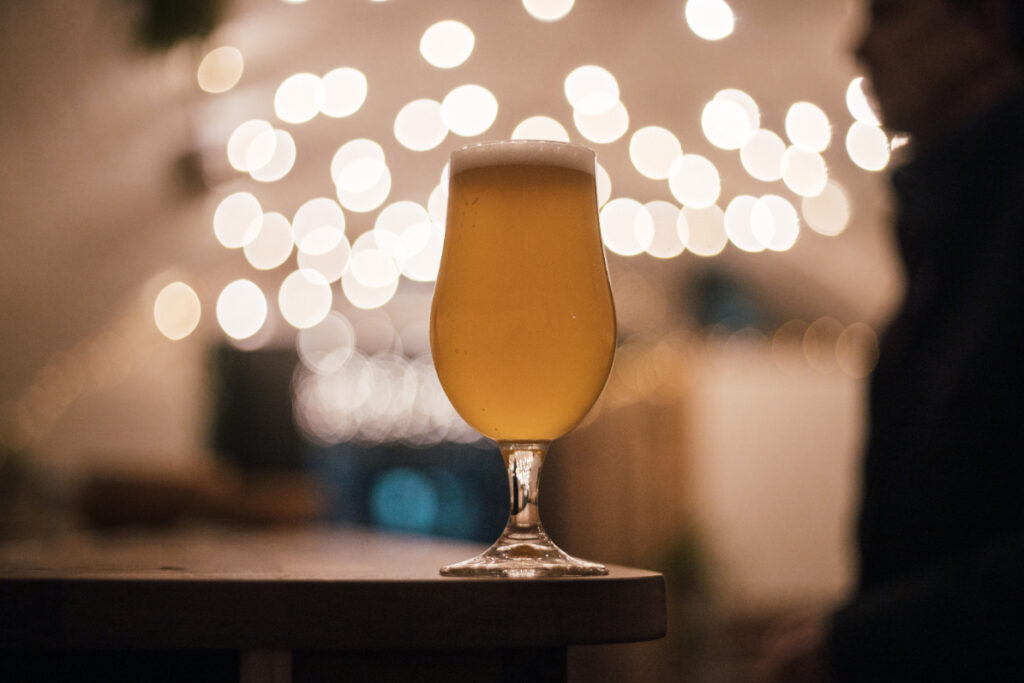
While early iterations of Hoxton Lager has been brewed as an English Keller Lager, the team see that moving to more of a seasonal brew in the future, with the core beer being more of a German Keller Lager. “We’re going to experiment and see how it goes,” he says. “The great thing about running our own brewery is the ability to experiment and innovate.”
And with the taproom offering, the team have the ability to produce a growing number of other beer styles for consumers to enjoy
“We want to keep the taproom fun and interesting and that means always having new small-batch beers available,” explains Driebergen. “We can brew a 10HL batch of a beer to serve at the taproom and if it performs well, we can always look to package it for the trade.”
Some of the first small batch beers to see the light of day include Cherise, a 7% Cherry Sour with Oak Chips & Tonka Beans as well as The Raspberry Incident, a 4.4% Raspberry Sour. The latter was an early example of the team learning as they go.
“In making that beer, we sourced fresh fruit that is flash frozen after it’s harvested. Assuming they’d be sealed, we left them in the cold store overnight but in doing so, they defrosted and the place looked like a murder scene. It smelled amazing, though!” he laughs. “Our general manager Nick was the poor guy that had to clean it up but at least we had a beer name as a result.”
Ingredients such as peanuts and marshmallows have also been additions to their beers, the latter being vegan so that the brewery can ensure each beer they produce remains vegan-friendly. “We don’t compromise on the quality of the ingredients, but we also price the beers accordingly at the taproom, and I think that’s fair,” he adds.
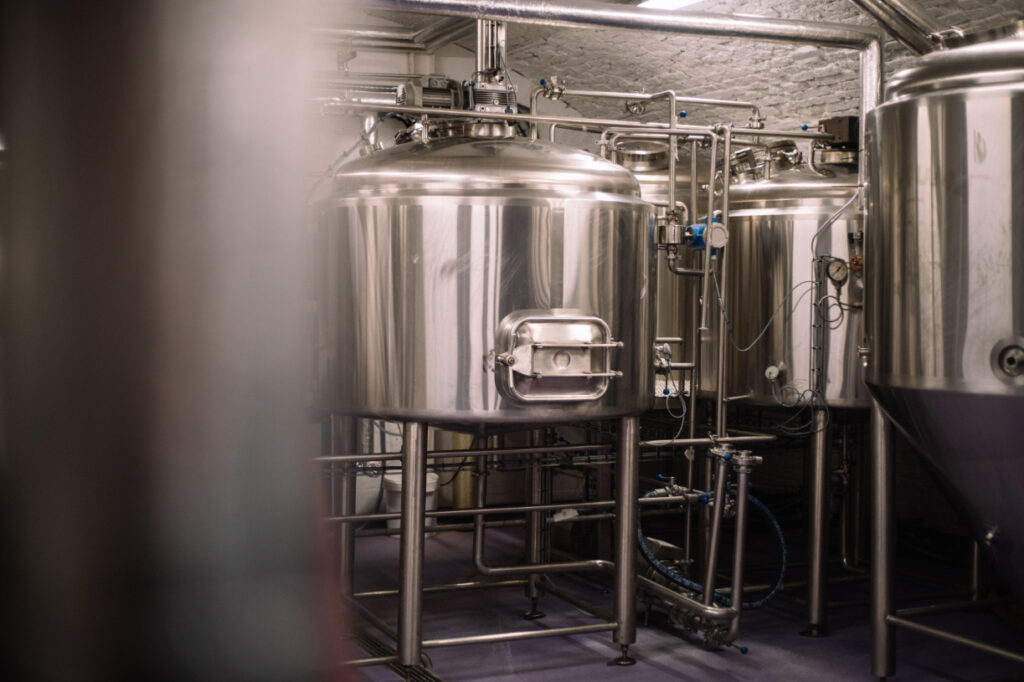
John, Ollie and Nick are no strangers to collaborations, and working with other brewers. They met while working at Bermondsey-based Fourpure, with John part of the team there for nearly a decade before making the leap last year. And he values the experiences he had during that time.
“When it started, it was a really exciting place to work. It was fast-paced with rapid growth and that’s always challenging, but also thrilling,” says Driebergen. “We were pouring our beer everywhere, and then we secured a supermarket listing that was great for the business but probably less so for the brand. Though I think it was an important one to make, too.
“Then came the acquisition by Lion, which really changed the culture of the business and I think it suffered from a bit of an identity crisis. Lots of decisions were made that impacted on all parts of the brewery.”
Despite this, he is proud of the work he did at the business and he’s also grateful for the wealth of colleagues and friends he made along the way.
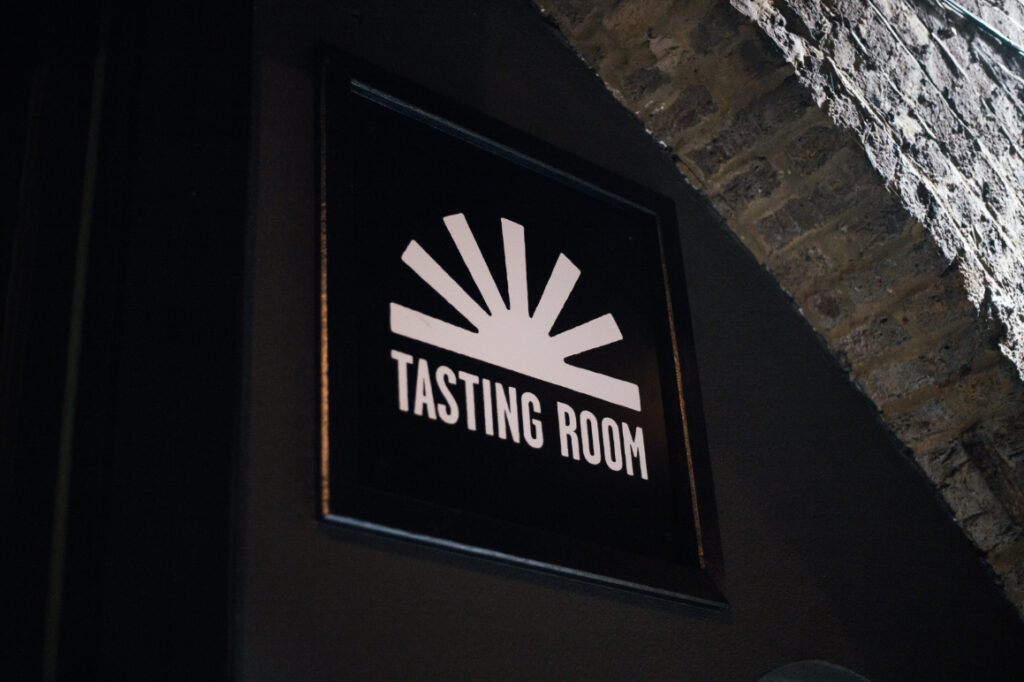
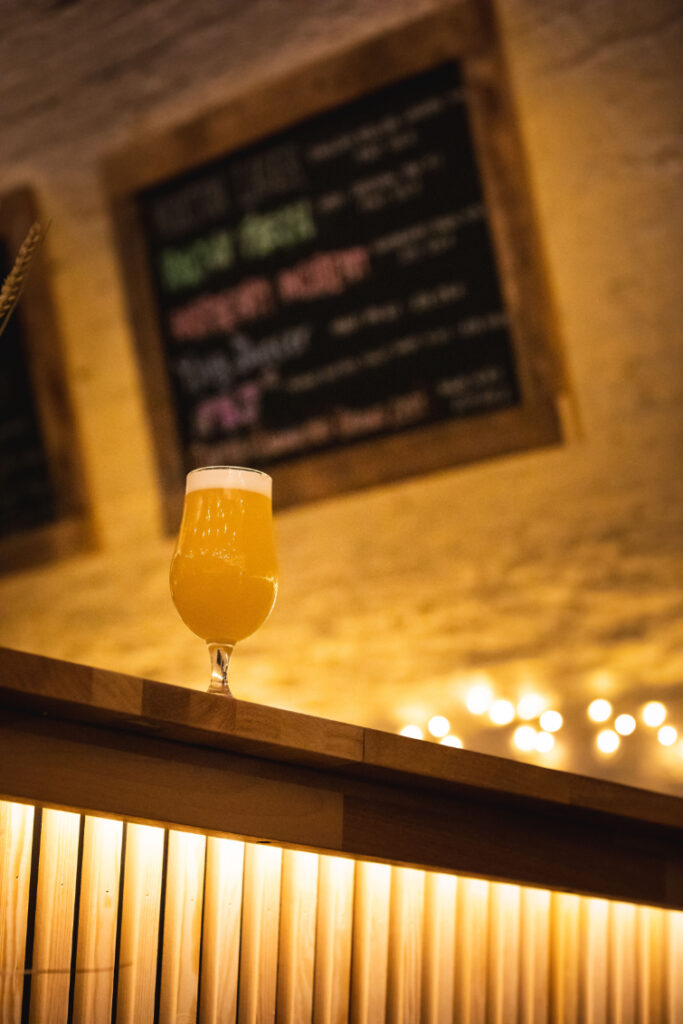
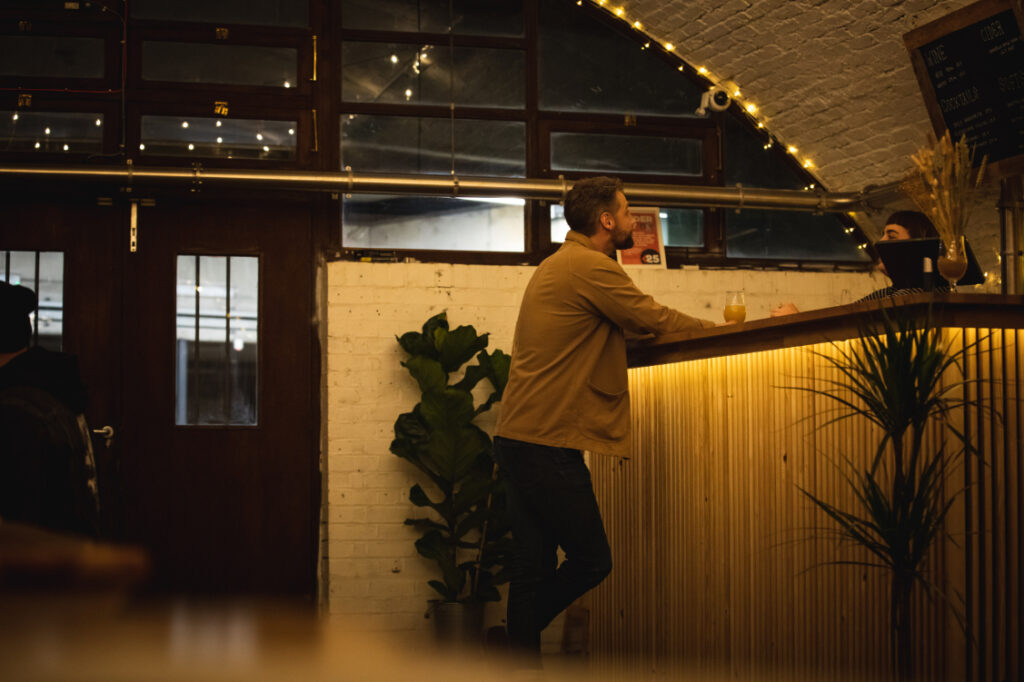
“I met so many fantastic people and have so many great memories of my time there. There are also some brilliant people that are still part of that business, too,” he recalls. “We can sometimes forget that when a brewery gets bought by a big multinational, it doesn’t mean that all of the team are suddenly bad people that no longer have that passion for what they do.”
At Fourpure, Driebergen saw a London-based brewery start, grow and evolve. And in Great Beyond Brewing Company, a brewery he’s helped start, he is confident and bullish about the road ahead.
“I really believe in Great Beyond Brewing Company, in every way,” he says. “I feel that we have the location and the business model, while the beer is great. And I think that we can only get better.”
Driebergen adds: “But I also know that, in the short term, like many other small independent craft breweries, our focus is on survival. We are thrilled with the support we’ve had already and we only want to build on that. We will survive, and then we will thrive.”
Photos: Great Beyond Brewing Company

